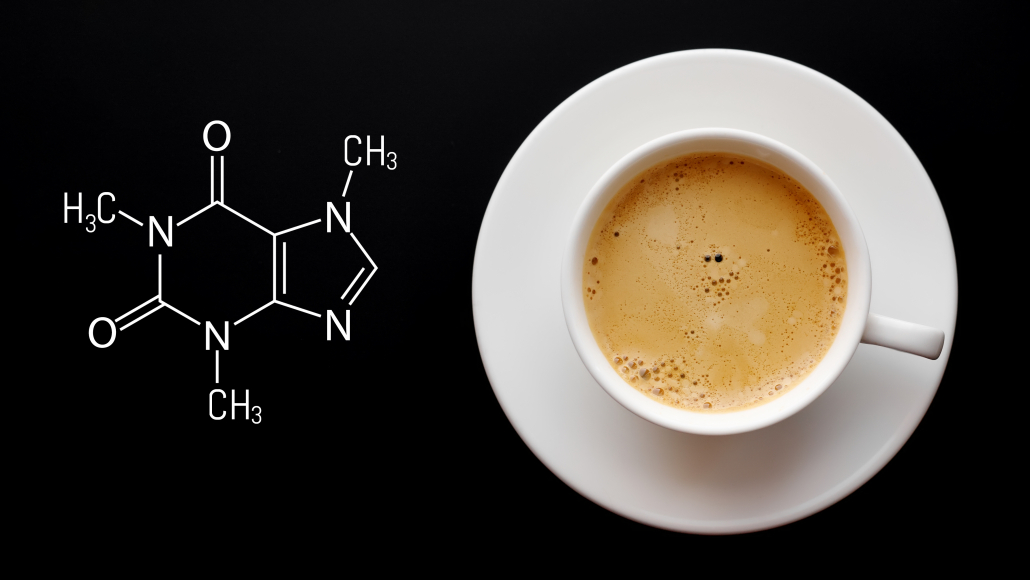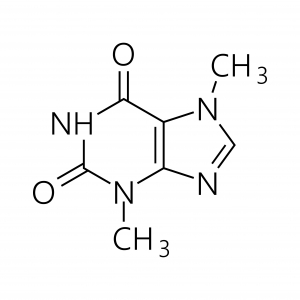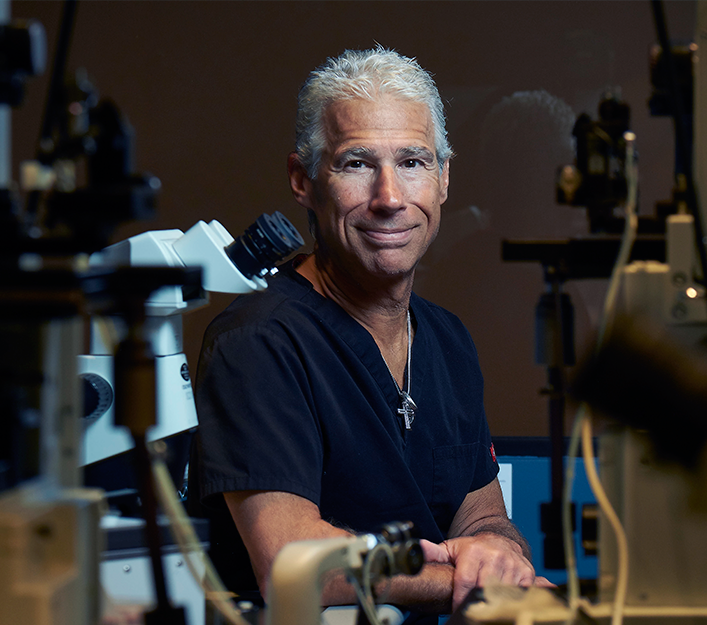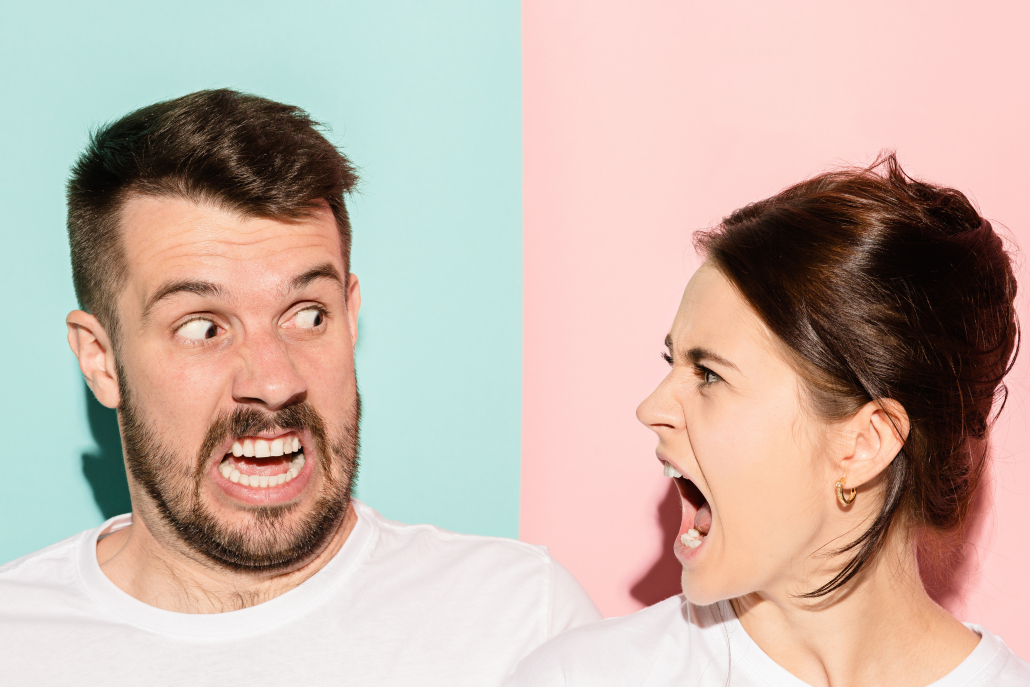We include products in articles we think are useful for our readers. If you buy products or services through links on our website, we may earn a small commission.
Is Caffeine Bad for You? Or Good?

Table of Contents
Caffeine is a daily necessity for most people. It can help you wake up in time for work, get through a long day, or push through an intense workout.
Perhaps unsurprisingly, caffeine is the most commonly used stimulant in the world. Not many substances as strong as caffeine are as socially accepted as it is.
Caffeine gets a bad rap for its ability to cause sleep problems and anxiety, yet studies have also discovered that caffeine has many health benefits. Is it right for you? Keep reading to find out.
What is caffeine?
Caffeine is a stimulant found in coffee, tea, cacao plants, and elsewhere. It stimulates the central nervous system to help you stay alert and prevent the onset of tiredness.
Many of caffeine’s benefits relate back to its chemical structure. The caffeine molecule is structurally similar to one of your body’s most important antioxidants, uric acid. Both caffeine and uric acid belong to a group of chemicals called purines.

Purines, in turn, are key components of your DNA and RNA. While this doesn’t mean that caffeine will alter your DNA, its classification as a purine means it has powerful stimulatory effects.
Caffeine has been enjoyed by humans for thousands of years. The use of brewed caffeinated tea goes back to at least 2737 BC.
Coffee’s history is also rich. Coffee is thought to have been discovered by an Ethiopian shepherd, Kaldi, who noticed that his goats were acting especially energetic after consuming coffee berries.
Nowadays as much as 80% of the world’s adult population consumes caffeine-containing drinks each day. This figure rises to 90% for adults in North America.
What foods and drinks contain caffeine?
Caffeine is naturally produced by the nuts, seeds, berries, or leaves of certain plants. These caffeine sources are then processed to produce caffeinated foods or beverages.
Below is a table with the caffeine content of several top caffeine sources:
| Food/drink | Caffeine (per 100 ml) |
| Espresso | 250-700 mg |
| Coffee | 100-200 mg |
| Yerba Mate | 60-130 mg |
| Energy drinks | 50-150 mg |
| Brewed tea | 40-120 mg |
| Soft drinks | 20-40 mg |
| Decaf coffee | 3-10 mg |
| Cocoa beverages | 2-7 mg |
| Chocolate milk | 2-7 mg |
Food products can contain caffeine too. One ounce of milk chocolate contains 1-15 mg of caffeine, while one ounce of dark chocolate contains between 5 and 35 mg. Moderate to large amounts of caffeine can also be found in some medications and weight loss supplements.
Caffeine’s Mental and Physical Benefits
Is caffeine bad for you? Many popular foods and drinks are, after all. Just because most people ingest something doesn’t mean it’s safe — just look at sugar or grains.
The research on caffeine, however, suggests the opposite. Studies show that caffeine may:
- Improve mood and brain function
- Boost metabolism and fat burning
- Enhance exercise performance
- Benefit your skin
Improves mood and brain function
Caffeine interacts strongly with your body’s adenosine system, blocking adenosine’s action enough to “[affect] brain functions such as sleep, cognition, learning, and memory, and modifies brain dysfunctions and diseases.”
When adenosine is blocked, the levels of other signaling molecules like dopamine and epinephrine (adrenalin) rise to compensate.
These changes positively impact many of the most important metrics of cognitive function.
One review found that as little as 37.5 mg of caffeine was enough to improve alertness, reaction time, and information recall.
Caffeine may also lead to mood improvements. Several studies have linked 2-3 cups of coffee per day to a 40% reduction in the risk of suicide. Another study found that caffeine consumers had a 13% lower risk of depression than non-users.
Bonus points for those who get their caffeine via tea or coffee. The caffeine in tea and coffee comes alongside other mood-boosting ingredients, like L-theanine and theophylline.
Animal studies have identified a basic mechanism for these positive changes: caffeine seems to reduce learned helplessness by changing the way the body stores and processes serotonin. Studies show that caffeine may speed serotonin uptake enough to reduce systemic serotonin levels. Having lower serotonin levels in certain areas of the brain, in turn, may reduce the ‘filter’ through which we perceive reality enough to encourage actionable life change.
Is caffeine bad for you? Certainly not when it comes to improving your mood.
Boosts metabolism and fat burning
Several of caffeine’s physical and mental benefits may be caused by something very simple: the ability to boost your BMR, or basal metabolic rate.
Unlike many other life forms, humans do better the ‘faster’ their bodies are able to convert substrates (like food) into energy. By raising one’s metabolism and body temperature, caffeine may help a wide variety of physiological processes work even better.
Studies show that consuming a moderate daily dose of caffeine may improve your metabolism by 11% — and your fat oxidation by 13%. Because caffeine increases your body’s ability to burn fat slightly more than it increases overall burn rate, it may also slightly improve your overall body composition. In other words, caffeine could shift your metabolism towards relying on fat and away from relying on carbs. Most people become naturally leaner once this shift happens.
Is caffeine bad for you? Not for your waistline or overall metabolic health.
Enhances exercise performance
Caffeine may increase your power and endurance enough to tangibly improve exercise performance.
First, let’s focus on caffeine’s ability to improve endurance. By increasing fat oxidation caffeine creates a glucose-sparing effect. This allows for improved glucose utilization in the latter part of a workout while delaying time to exhaustion. Just a moderate dose of caffeine can improve endurance by up to 5%.
Caffeine may also speed up the function of the central nervous system enough to boost maximum muscular power. At the same time, it improves muscle firing enough to reduce perceived exertion during exercise by up to 5.6%. The higher your caffeine dose, the bigger your strength improvements may get.
Caffeine’s benefits are relevant to the post-workout period, too. It may help your body recover faster from intense exercise by disrupting the formation of inflammatory molecules and their intermediates.
Is caffeine bad for you? Not for your exercise performance.
Benefits your skin
People don’t usually think of how caffeine benefits the skin, probably because the compound almost always comes to us courtesy of ingestible drinks like tea and coffee.
Caffeine-rich substances nonetheless make great topicals. Caffeine is easily absorbed through the skin, and upon absorption it provides a variety of skin-centric benefits.
These benefits include:
- Reduced damage/photoaging from sunlight
- A natural sun-blocking effect
- Increased antioxidant status
- Improved hair growth
- Improved skin tone
As silly as it may sound, using strong coffee or espresso as a topical is a cheap-yet-effective way to obtain the above benefits (Just make sure it’s cooled first.) Skincare serums and salves that contain caffeine can also work.
Is caffeine bad for you? Not when used to benefit your skin.
How much caffeine is too much?
Most healthy adults can tolerate up to 400 milligrams of caffeine a day. This intake provides access to coffee’s best health benefits without increasing the risk of side effects.
A small cup of coffee contains roughly 100-150 milligrams of caffeine, so there’s plenty of room to enjoy caffeinated beverages while staying under the 400 mg allotment. Don’t worry about having to give up your daily espresso!
There’s another way to determine how much caffeine is too much: by paying close attention to your body. Ingesting caffeine in excess of your body’s tolerance can lead to a variety of side effects. Caffeine side effects include:
- Jitters
- Insomnia
- Irritability
- Headaches
- Nervousness
- Fast heartbeat
- Muscle tremors
- Excess urination
If you’re experiencing any of the above, you may want to cut back on caffeine — whether you’re currently consuming more than 400 mg of caffeine or not.
Caffeine’s side effects can also be caused by low-quality caffeine sources. Low-quality coffee can be high in certain types of mold; ‘burnt’ coffee can be high in volatile compounds. If lowering your caffeine intake isn’t working, consider trying a different caffeine/coffee source.
Is caffeine bad for you? If you’re overdoing it enough to experience the above symptoms, you likely want to dial it back until they subside.
Who shouldn’t drink caffeine?
Although caffeine can be beneficial for adults, it’s not safe for children.
People with heart problems or high blood pressure should also shy away from heavy caffeine use, as caffeine may make these conditions temporarily worse.
Pregnant women should be especially careful with caffeine. We recommend consuming less than 200 milligrams of caffeine a day if you’re pregnant, nursing, or trying to become pregnant.
Is caffeine bad for you? For pregnant women, children, or those with health problems, it should be eliminated or limited.
How does caffeine affect fertility?
The caffeine in your morning coffee may be benefiting your mood or workout routine, but it’s not nearly as beneficial to your fertility.
One 1988 study found that women who drank a cup of coffee a day had half the fertility of women who did not.
However, this study hasn’t been replicated since then, and the WHO says that there’s “no clear association between coffee/caffeine consumption and the chance of achieving a pregnancy.” [37] But that doesn’t mean its findings should be discounted entirely.
To play it safe, if you’re trying to get pregnant, we recommend reducing your coffee consumption to 1 or 2 cups per day.
Is caffeine bad for you? When considering the mixed evidence around caffeine and fertility, it is likely best to reduce and even cut out caffeine when trying to get pregnant.
How to curb your caffeine intake
While caffeine is safe and beneficial for most people, it shouldn’t be used as a bandaid solution to compensate for a poor diet or suboptimal sleep schedule.
Using caffeine in these ways can quickly lead to the side effects mentioned above. If your caffeine intake is a source of fewer pros than cons, it may be time for a change.
Consider titrating your caffeine intake down slowly. Caffeine is powerful enough that your body can become highly dependent on it, so you may need to focus on rest while you slowly wean off.
Finding a suitable replacement beverage may also help you kick the caffeine. A large part of caffeine/coffee’s allure is psychological. So substituting a caffeinated beverage for a warm cup of tea or milk may help you retain those much-needed good vibes. You can also try decaf coffee instead.
The bottom line of caffeine
Caffeine is a beneficial substance whose effectiveness also makes it easy to overuse.
Expect both mental and physical benefits if you can identify the right amount of caffeine for your body. Coffee/caffeine may:
- Improve mood and brain function
- Boost your metabolism and fat burning
- Enhance your exercise performance
- Benefit your skin
If you’ve grown dependent on caffeine, however, it might be time to cut back and take a break. Moderation really is key.















